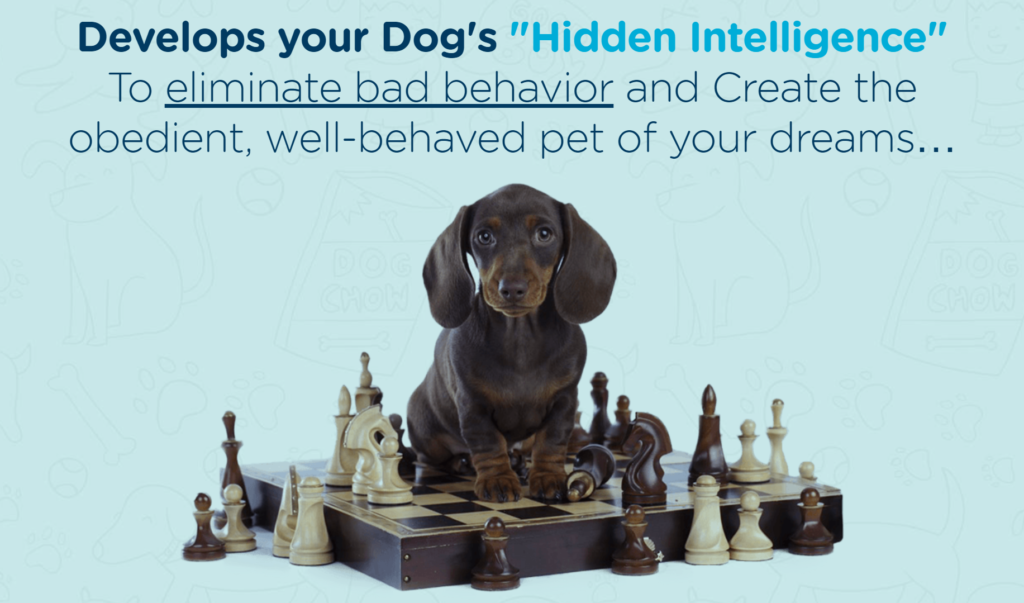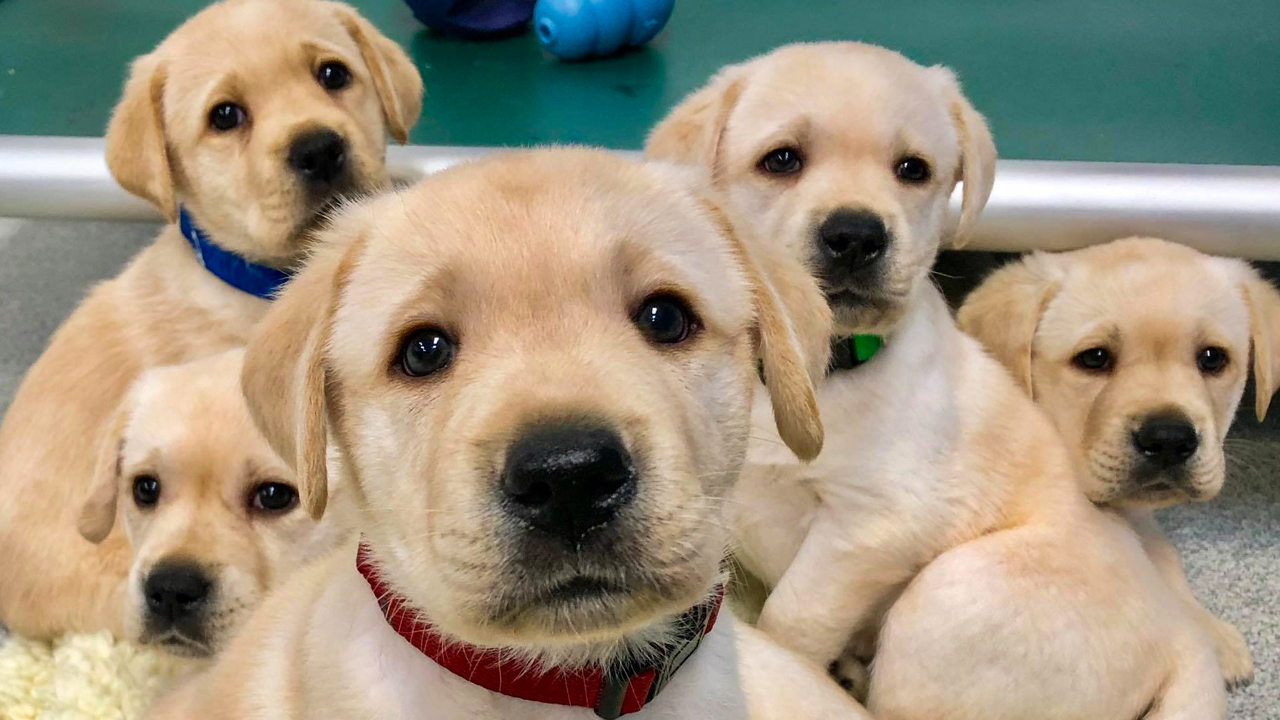Raising a puppy is an exciting journey, but it’s also a significant responsibility. To ensure your dog grows up to be a well-adjusted and sociable companion, mastering puppy socialization is key. In this comprehensive guide, we’ll explore the importance of socializing your puppy and provide valuable insights and tips from top professionals in the field.
Why Puppy Socialization Matters
Puppy socialization is a critical phase in a dog’s development, typically occurring between the ages of 3 to 12 weeks. During this time, puppies are like sponges, rapidly absorbing experiences and behaviors. Failing to provide adequate socialization during this period can lead to behavioral problems in adulthood, such as fearfulness or aggression.
The Basics of Puppy Socialization
Introducing Your Puppy to the World
- Meet and Greet: During the first five months of your puppy’s life, introduce them to at least a hundred different individuals from various backgrounds. Encourage these people to offer treats, helping your puppy form positive associations.
- Puppy Kindergarten: Enroll your puppy in a puppy kindergarten class that includes supervised playtime. This helps them develop appropriate social skills and bite inhibition, which regulates bite pressure.
- Varied Outings: Take your puppy to different destinations, making each outing enjoyable. This exposure to various environments and stimuli is essential for well-rounded socialization.
Immunizations and Safe Outings
- Balanced Approach: While you should prioritize safety, don’t wait until your puppy has received all their immunizations to socialize them. Carry your puppy to places where other dogs have been, or visit dog-free areas like friends’ homes.
Prevent Puppy Bad Breath with our guide here!
Making Socialization Enjoyable
Positive Reinforcement Training
- Treat-Reward Training: Utilize treat-reward training to teach your puppy desired behaviors. Find a trainer who employs positive approaches that align with your values and attend socialization sessions.
- One Command, One Action: Be consistent in your commands and actions. Dogs learn best when you communicate clearly and consistently. Avoid repeating commands excessively.
Crate Training: A Gentle Approach
- Effective Housebreaking: Crate training is an effective and gentle technique for housebreaking. It provides your puppy with a safe, comfortable space. Never use the crate as a form of punishment. It also helps alleviate separation anxiety.
- Gradual Introduction: Start by leaving your puppy for short periods and gradually increase the duration. This helps them feel secure when you’re away.
Playtime with Other Puppies
- Importance of Play: Lack of playtime with other puppies can lead to unwanted behaviors like mouthing. Organize regular play sessions with other puppies or gentle older dogs, ensuring a positive and energetic experience.
- Avoid Bullying: Ensure that play sessions are pleasant and avoid situations where one puppy becomes a bully or victim. While rough play is normal, it should never escalate to the point of injury.
Building Trust and Bonding
- Establishing Trust: The first step in training a puppy is to earn their trust. Forming a bond is essential for a good relationship, making learning easier and your dog more confident.
- Calmness Training: Teach your puppy to be calm when needed. This “off switch” is crucial for managing behavior.
- House Training: Properly house training your puppy is essential to prevent future issues and ensure a harmonious living environment.
The Journey of a Lifetime
Raising a puppy is a significant commitment that requires 24-hour attention. Remember, your puppy depends on you for everything from basic needs to socialization. If you can’t be there, consider hiring a dog walker or enlisting the help of a friend.
Vocabulary and Positive Learning
- Teaching Vocabulary: Begin teaching your puppy vocabulary from the start. Share meals and observations, and expose them to new stimuli daily.
- Playful Learning: Encourage learning through play rather than roughhousing. Play instructional games that help your puppy develop and understand commands.
Seek Professional Guidance
- Positive Reinforcement: Look for a trainer who emphasizes positive reinforcement over force or intimidation. Professional help can be invaluable in achieving the desired behavior in a caring manner.
Encourage Exploration
- Positive Associations: Never force your puppy to approach something new or potentially frightening. Instead, pair new experiences with rewards to create positive associations.
Stay Patient and Consistent
- Patience and Consistency: Puppies are constantly learning. Reward desired behaviors and replace undesirable ones with something they enjoy. Consistency is key in reinforcing good habits.
Early Positive Experiences
- Socialization Matters: Socialize your puppy to avoid behavioral issues caused by a lack of exposure to new things. Positive early experiences are crucial for a confident and well-adjusted dog.
Socialize in a Human Environment
- Diverse Exposure: Socialization includes exposing your puppy to people of various genders, ages, and backgrounds, as well as different environments and situations.
- Make Sure to get your Puppy used to Dog Grooming Early, Our Guide Here
Always Put Your Puppy First
- Safety and Supervision: Focus on making your dog feel safe and keep their mind engaged. Expose them to new sights, sounds, and experiences to build confidence.
Seek Professional Advice
- The Critical Phase: This early stage is crucial in your dog’s life. Don’t hesitate to seek advice from competent trainers who can guide you through the challenges of puppyhood.
Begin Training Right Away
- Early Training: Start training and socialization from day one. Teach your puppy what you expect, and use management methods to prevent unwanted behaviors.
Knowledge Is Power
- Educate Yourself: Gain knowledge about puppy training and behavior. Utilize positive reinforcement and learn from experts in the field.
Effort Pays Off
- Invest Time: Be prepared to invest effort and time during the first 6-12 months to raise a confident and happy pet.
Crate Training for Patience
- Crate Training Benefits: Crate training is not just for housebreaking but also for teaching patience and relaxation.
Summary of Puppy Training Suggestions
Training your puppy is a journey that lays the foundation for a well-behaved and sociable companion. From socialization to positive reinforcement and early experiences, these tips will help you raise a confident and happy dog.
Want to treat your puppy with a healthy snack? Make sure to check out our Guide on Dog Secret Snacks Here
Frequently Asked Questions (FAQ) – Puppy Socialization Guide
Q1: What is puppy socialization, and why is it important? A1: Puppy socialization is the process of exposing your puppy to various people, places, and experiences during their early development. It’s crucial because it helps puppies grow into well-adjusted and confident adults, preventing behavioral issues like fearfulness and aggression.
Q2: When should I start socializing my puppy? A2: Puppy socialization typically begins between 3 to 12 weeks of age. This period is when puppies are most receptive to new experiences and learning. However, continue socializing throughout their first year.
Q3: Can I socialize my puppy if they haven’t completed all their vaccinations? A3: Yes, you can and should socialize your puppy before they complete all their vaccinations. Carry your puppy to safe places and introduce them to people and environments without a high risk of disease transmission. Consult your vet for guidance.
Q4: How do I socialize my puppy effectively? A4: Effective socialization involves exposing your puppy to various people, animals, and environments in a positive and controlled manner. Encourage positive interactions, use treats and rewards, and ensure the experiences are enjoyable for your puppy.
Q5: What is bite inhibition, and why is it important? A5: Bite inhibition is the ability of a dog to control the force of their bite. It’s crucial because it prevents dogs from causing harm when they bite, even during play. Proper bite inhibition is typically learned during puppy socialization.
Q6: What is crate training, and why is it recommended? A6: Crate training involves using a crate as a safe and comfortable space for your puppy. It’s recommended because it helps with housebreaking, prevents destructive behaviors, and reduces separation anxiety when done correctly.
Q7: Can I train my puppy to be obedient and social later in life if I missed the early socialization window? A7: While you can train a dog at any age, the early socialization window (up to 12 weeks) is crucial for shaping a dog’s behavior and preventing issues. Socializing later can still be beneficial but may require more time and effort.
Q8: Should I hire a professional dog trainer for socialization and obedience training? A8: Hiring a professional dog trainer can be highly beneficial, especially if you’re inexperienced. Look for trainers who use positive reinforcement methods and have experience with socialization and obedience training.
Q9: How can I ensure my puppy’s safety during socialization outings? A9: Ensure your puppy’s safety by choosing safe locations, avoiding high-risk areas, and carrying them if necessary. Always supervise interactions with other dogs and people and use a secure leash or harness.
Q10: What’s the role of positive reinforcement in puppy training? A10: Positive reinforcement involves rewarding desired behaviors with treats, praise, or play. It’s a highly effective training method that encourages good behavior and strengthens the bond between you and your puppy.
Q11: Can I socialize my puppy with other puppies, and how often should they interact with other dogs? A11: Yes, socializing your puppy with other puppies is essential. Regular play sessions (3-5 times a week) with well-matched playmates help them learn important social skills.
Q12: How can I make socialization enjoyable for my puppy? A12: Make socialization enjoyable by ensuring positive associations with new experiences. Use treats, play, and praise to reward good behavior. Keep interactions fun and stress-free.
Q13: What should I do if my puppy exhibits fear or aggression during socialization? A13: If your puppy shows signs of fear or aggression, consult a professional dog trainer or behaviorist for guidance. Early intervention is essential to address and correct these behaviors.
Q14: Can I teach my puppy to use the bathroom outside, and how do I do it effectively? A14: Yes, you can toilet train your puppy. Use a consistent schedule, positive reinforcement, and crate training to teach them where to go. Be patient and consistent in your approach.
Q15: How do I know if my puppy is well-socialized? A15: A well-socialized puppy is confident, relaxed, and comfortable in various environments and around different people and animals. They exhibit good manners and positive behavior during social interactions.
Q16: Are there any resources or guides available for further puppy training and socialization? A16: Yes, there are many resources available, including books, online courses, and professional trainers. Look for reputable sources that emphasize positive reinforcement and ethical training methods.
Remember that every puppy is unique, and training approaches may need to be tailored to their individual needs. Always consult with a veterinarian or professional dog trainer if you have specific concerns or questions about your puppy’s socialization and training journey.
Want a step by step guide from a top professional? Want your Puppy to be smarter than you thought they could be? Want them act like a person with their understanding?
Check out brain training your puppy by clicking here


